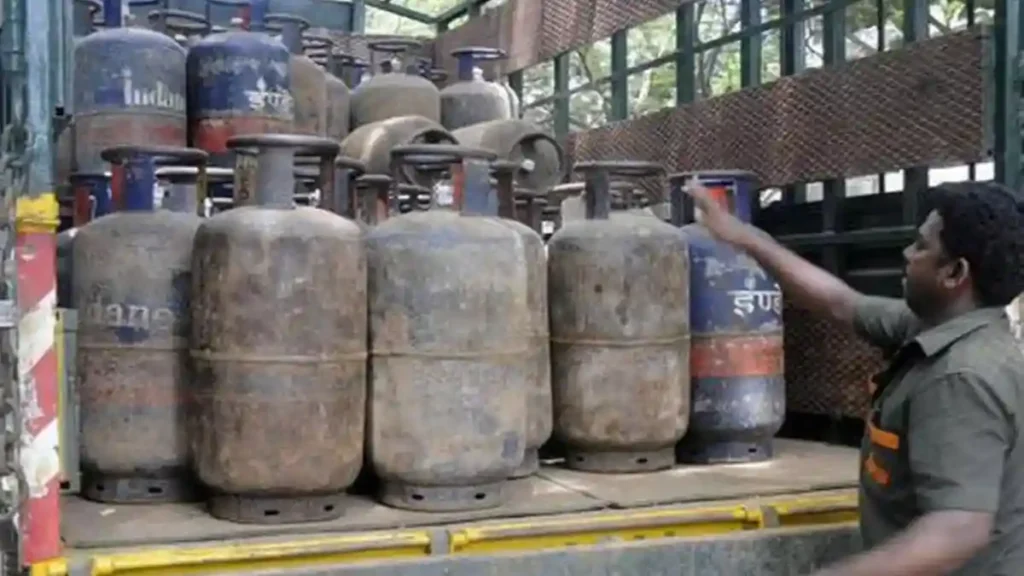As the new month begins, several financial and regulatory changes have come into effect from March 1, 2025. These changes impact various sectors, including gas prices, mutual fund and demat account nominations, insurance premium payment rules, and banking regulations. Here is a detailed overview of the four major changes that have been implemented from today.
Increase in Commercial Gas Cylinder Prices
From March 1, the price of a 19-kg commercial gas cylinder has been increased by ₹6 across various cities in India. However, there has been no change in the price of the 14.2-kg domestic LPG cylinder.
The revised prices of commercial LPG cylinders in major cities are as follows
Delhi: The price has increased from ₹1797 to ₹1803.
Kolkata: The price has risen from ₹1907 to ₹1913.
Mumbai: The price has increased by ₹5.5, from ₹1749 to ₹1755.50.
Chennai: The price remains at ₹1965.
Despite the increase in commercial gas cylinder prices, domestic LPG prices remain unchanged. The current price of a domestic LPG cylinder is ₹803 in Delhi and ₹802.50 in Mumbai.
New Nomination Rules for Mutual Funds and Demat Accounts
The Securities and Exchange Board of India (SEBI) has introduced new regulations regarding the nomination process for mutual funds and demat accounts. Under these new rules, investors can now nominate up to 10 individuals for a single demat account or mutual fund portfolio. This change aims to reduce unclaimed assets by ensuring that investments are properly managed and transferred in case of unforeseen circumstances.
Key benefits of the new nomination rules
Investors can allocate specific proportions of their holdings to different nominees.
The nomination process is now more flexible, allowing for better estate planning.
This change will help in reducing the volume of unclaimed assets in the financial system.
Revised Insurance Premium Payment Rules
A significant change has been introduced in the insurance sector with the implementation of the ‘Insurance-ASBA’ (Applications Supported by Blocked Amount) facility. The Insurance Regulatory and Development Authority of India (IRDAI) has directed life and health insurance companies to adopt this new system to enhance customer convenience and financial security.
Key Features of the Insurance-ASBA Facility
Policy buyers can now block the insurance premium amount in their bank accounts instead of making an upfront payment.
The blocked amount will only be deducted if the insurance policy is issued and approved by the insurer.
If the insurance application is rejected, the blocked amount will be automatically released back into the customer’s account.
This facility will initially be available for individual policyholders only.
Previously, customers had to pay the premium in advance when applying for an insurance policy. However, this new system ensures that the amount is only debited once the policy is issued, providing greater transparency and security to policyholders.
KYC Update Mandatory for Punjab National Bank Account Holders
Punjab National Bank (PNB) has issued a directive for its customers, mandating a Know Your Customer (KYC) update to keep their accounts active. The bank has warned that if there has been no transaction in an account for more than two years, it may be deactivated.
Steps to Keep Your PNB Account Active
Customers should update their KYC details by visiting their nearest branch.
Transactions should be made regularly to avoid account deactivation.
Necessary documents, such as identity proof and address proof, must be submitted to comply with the bank’s guidelines.
Failure to update KYC could result in account suspension, requiring additional steps to reactivate the account.
No Change in Petrol and Diesel Prices
Despite these regulatory and financial changes, fuel prices have remained unchanged. The prices of petrol and diesel continue to be as follows:
Delhi: Petrol at ₹94.72 per liter and diesel at ₹87.62 per liter.
Mumbai: Petrol at ₹103.44 per liter and diesel at ₹89.97 per liter.
Conclusion
The month of March has brought several important financial and regulatory changes that will affect consumers, investors, and businesses alike. The increase in commercial gas cylinder prices will impact the hospitality and food service sectors, while new nomination rules for mutual funds and demat accounts provide more flexibility for investors. The introduction of Insurance-ASBA will streamline the insurance premium payment process, ensuring better financial security for policyholders. Additionally, PNB account holders must update their KYC details to prevent account deactivation.
These changes highlight the continuous efforts of regulatory bodies to enhance financial transparency and consumer convenience across various sectors. It is advisable for individuals and businesses to stay informed about these updates to manage their finances effectively.

